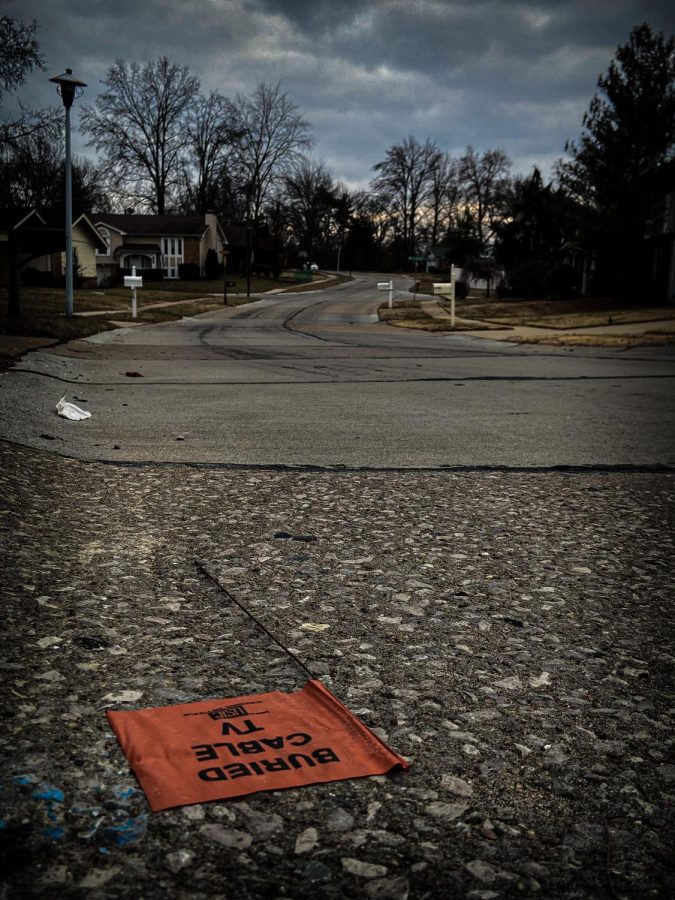How the Infrastructure Bill Could Cross Your Path
Road conditions in the area are considered poor by many. Could the transportation bill help change that?
December 2, 2021
While the transportation bill recently passed by Congress may seem to be a faraway concept, it could affect people more than they realize. It can even affect high schoolers. Despite the notion that things in the “political world” have nothing to do with minors or those that can’t vote, that is not necessarily the case. But how exactly could this bill in particular affect or “cross paths” with the likes of a high school student?
The controversial infrastructure bill was finally passed after months of debate over what should and should not be included. But what actually is in this $1.2 trillion bill? According to Forbes, the bill consists of the following: $110 billion for improving roads and bridges, $39 billion to go towards improving public transit systems, $66 billion to go towards Amtrak (National Railroad Passenger Corporation) improvement, $65 billion to go towards improving broadband so all Americans may have access to high-speed internet, $108 billion to go towards improving our nation’s electric grid in an attempt to shift to a more environmentally friendly technology, $14.5 billion towards electric vehicles, $55 billion to replace the nation’s lead pipes and service lines, roughly $25 billion to modernize America’s airports, and $11 billion in transportation safety programs. That is roughly $493.5 billion. The rest of that $706.5 billion is supposedly to go towards funding previously authorized funding for infrastructure.
So the real question: how would any of this affect a high school student? One of the principal parts of this bill is fixing our nation’s roads. According to LendingTree’s online insurance marketplace, Missouri has the tenth worse road conditions compared to other states in the country. In fact, 25% of the state’s roads were deemed “non-acceptable,” costing the average motorist $699 annually due to the poor conditions. Many around the St. Louis city and metro area also have voiced their complaints about the road conditions, with many experiencing them on their daily routes. With the money passed in the bill, the hope is to improve those roads. That would then create a safer driving experience, as well as reduce motor expenses.
Another big part of this bill is the broadband expansion. $65 billion are signed to expand broadband, which will make high-speed internet accessible to all Americans. This will hopefully make internet more affordable for the average American. That would allow more high school students to have more access to Wi-Fi at home and in other areas. As society is starting to become more internet-based, including the American education system, Wi-Fi is increasingly important. Many schools around the country use some form of digital devices for their students to complete schoolwork nowadays. “States and cities must now leverage these resources for the deployment of free Wi-Fi networks in low-income apartment buildings,” chief executive of the EducationSuperHighway Evan Marwell said in a statement according to MarketWatch. “We have a historic opportunity to build a nation with no home left offline.” Not only do students use the internet for schoolwork, but for personal use as well. With a generation who grew up on the internet, most are frustrated by low speed internet or a lack of internet at all. This bill affects a central part of teenagers’ lives.
The $14.5 billion towards electric vehicles could also prove to be beneficiary. Currently, electric cars are excruciatingly expensive, with the average electric car costing roughly $50k according to a California-based vehicle valuation. That could change over time. A shift from gas to electric cars wouldn’t happen overnight and would likely take years, but that it is a genuine change we could see occur, with the help of this bill. An increase in electric cars could also potentially save money for individuals in the long run. It is estimated that to recharge a fully depleted vehicle it would cost roughly $11. That is a lot less compared to how much people pay for gas to refill a vehicle fully. In Missouri, the average price of gas is almost $3 per gallon, and it has been increasing recently. It’s approximated that on average, people need to replace their car about every eight years, while electric cars would likely last up to 20 years before needing to be replaced according to The New York Times. Meanwhile, electric car batteries are yet continuing to improve even more as the years go on. On top of that, electric vehicles are considerably more environmentally friendly than gas-powered cars. Electric cars help to decrease the amount of fossil fuels and carbon emissions going into the environment because of gas-powered cars.
While many bills that are passed may seem like they would have little effect on the average American high school student, this is not always the case. Whether it be road conditions, internet accessibility, or a shift to electric cars, any bill could have the potential to affect high schoolers’ lives somehow. It is important for high school students to be aware of the changes being made in government as many bills being enacted, truly do have an affect on their lives.


